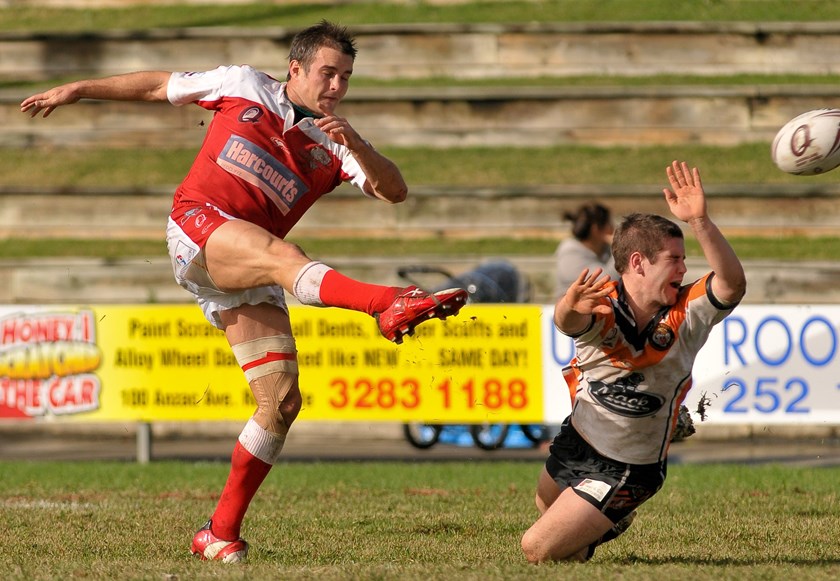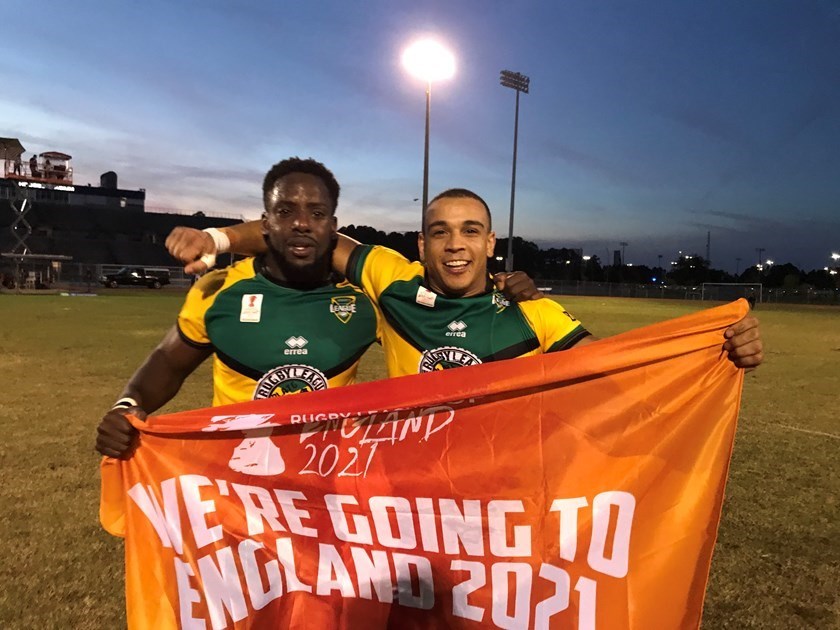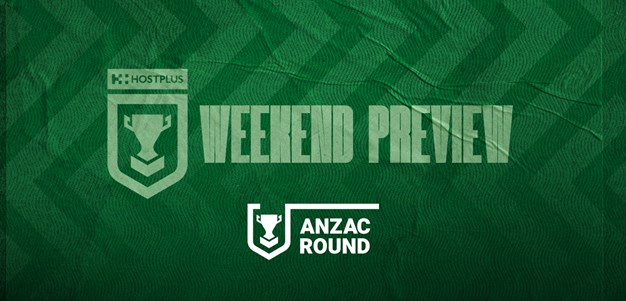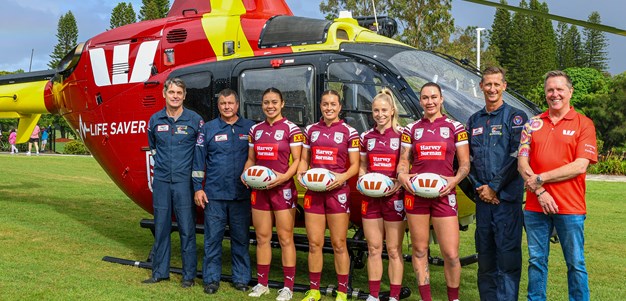They are one of the stories of the year in rugby league; and NRL.com’s Brad Walter shares how a Queensland connection in former Easts Tigers and Redcliffe Dolphins player Dane Campbell helped set the foundation for Jamaica's ground-breaking Rugby League World Cup 2021 qualification.
Now a Recruitment Officer and Academy Coach with the Melbourne Storm; Campbell also helped establish the Vanuatu Rugby League, another nation where the popularity of the sport is growing.
The former halfback was in recent years featured on QRL.com.au as part of a look back at the epic 2004 grand final that was won by the Burleigh Bears in extra time against Easts Tigers. View the video story here >> Dane Campbell on 2004 Cup grand final
The NRL.com story by Brad Walter on Jamaica’s qualification win is published below:
From stone fields to the World Cup: Jamaica's rise
Jamaica coach Romeo Monteith hopes the legacy of qualifying for the 2021 World Cup will be a dedicated rugby league field in Kingston and an invitation for the Reggae Warriors to play at the new International Nines in Australia next year.
The Caribbean island last weekend became the 11th nation to secure a place at the World Cup in England by beating Canada and the United States to win the Americas Championship just 14 years after Melbourne Storm official Dane Campbell helped establish the Jamaica Rugby League Association.
With a large Jamaican population in the UK and Super League stars paying their own way to Florida to help their country of heritage win the World Cup qualifying tournament, the rise of the Reggae Warriors has been compared to that of Tonga.
London Skolars - whose coach Jermaine Coleman assisted Monteith, along with former NRL star Glenn Morrison - have already called on Jamaica's most famous athlete, Usain Bolt, to take up league ahead of the World Cup after his failed bid to earn an A-League contract with Central Coast Mariners.
However, Monteith is also determined to use the exposure generated by the success of the Reggae Warriors to develop the game in Jamaica, where about 1000 registered male and female participants are forced to play on stone and rock-filled fields or are often chased off soccer pitches.
"I think we are the fourth-biggest domestic nation on this side of the world [the northern hemisphere] in terms of participation numbers, behind England, France and Wales," Monteith said.
"We play in the high schools, in the colleges and at community clubs but it has been tough.
"Our kids play on fields of stones, that is not a joke. There are many fields that we are banned from using so one of the main things I would like to see come out of this is for our government to allocate a ground for us so our kids can play in peace."
Monteith would also like more opportunities for Jamaica to develop players at the elite level by playing against other nations in Tests and at tournaments, including the International Nines, which are expected to be held at the new Western Sydney Stadium at the end of next season.
"Jamaica is the next Tonga. In 2021, we are that story," Monteith said. "I think it would be good to get us in the Nines and get that promotion going now. I genuinely believe we would be competitive."

The Australian connection
Campbell, who played halfback for Newcastle in 2005 after leading Easts Tigers to the 2004 Queensland Cup premiership, was a week late starting his first pre-season with the Knights after organising a West Indies team to play South Africa in London.
It was the only match the West Indies ever played but the concept, which was inspired by the formation of a Greece team in Sydney, led to the establishment of the code in Jamaica.
"With so many players of West Indies heritage in England I thought it would be a wonderful opportunity to do something like the Greeks had done and use that team as a catalyst to try to expand the game back into those nations," Campbell said.
"I then got an email from a gentleman in Jamaica, Paul Morris, who said 'we have seen what you are trying to do, we are a bit disgruntled with rugby union here in Jamaica, would there be an opportunity to talk about introducing rugby league to Jamaica'.
"There were some other motivated guys in Jamaica who wanted to kick the game along. To see what they have now achieved and knowing the amount of time and personal finance they have sacrificed for the cause made me very, very proud after the game."
Among them were Monteith and Roy Calvert, who is also a member of Jamaica's coaching staff.
Usain Bolt and the talent pool
Wakefield fullback Ben Jones-Bishop and Leeds utility Ashton Golding are the biggest names in the Jamaica team, while England centre Kallum Watkins and Huddersfield duo Michael Lawrence and Jordan Turner, who played for Canberra in 2017, are also eligible.
London Skolars, who play in the third tier of the English competition, reached out to Bolt on social media and while it is unlikely he would take up the challenge, Campbell believes approaching the world's fastest man is "not as silly as it sounds".
"You're looking at a six-foot-five [195cm] tall winger who is the quickest guy of all time and he can no doubt leap pretty high," Campbell said. "If there was an investor out there who was able to fund that opportunity it would certainly help Jamaica's cause."
If not, Campbell knows from his role as recruitment and pathways officers with the Storm that there are potentially dozens of athletes in Jamaica who possess natural speed and believes the talent pool for NRL clubs could rival Fiji.
"We were looking recently at Under 16s in Queensland right now, and there may have been three or four kids under the age of 16 running sub-11 second 100 metres," he said. "If you go to Jamaica I think I registered 25 kids who could run 100m in under 11 seconds.
"I think there could be an influx of guys similar to what we are seeing now with Fiji, where the likes of Semi Radradra and Vunivalu have spiked the interest of NRL clubs to the point that there are now five or six clubs actively recruiting out of Fiji."

The future
Jamaica now have three years to prepare for the World Cup and officials are aiming to secure corporate backing as well as greater government support to grow the game and ensure sustained success.
"People laughed when we started the sport, literally," Monteith said. "They said Jamaicans aren't meant to play contact sport so you are wasting your time and no one is going to play but we are now going to the World Cup so it something special.
"In terms of team sports, Jamaica has not qualified for many World Cups so everyone is elated, our local media is all over it and we are aware that we are 1069 days away from the big show."
*This story originally appeared on NRL.com
*Jamaica team photos via their Facebook page > Jamaica Rugby League Association





